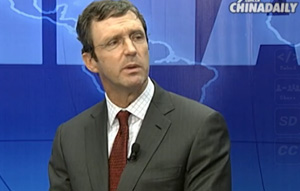China pursues a 'balanced and active' European policy
Updated: 2013-11-26 00:50
By Fu Jing in Brussels (China Daily)
|
||||||||
Visit helps realize trade goal with EU
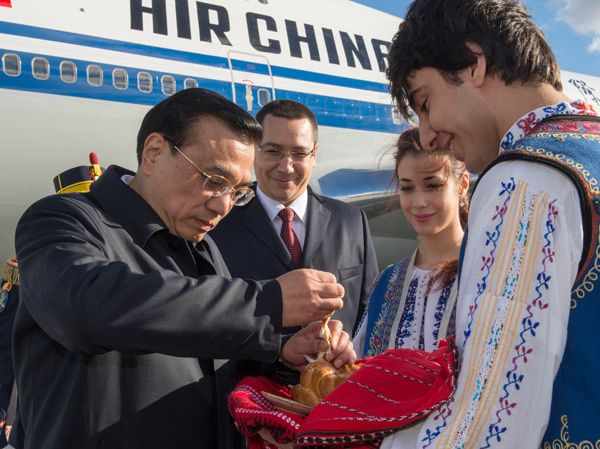 |
|
Premier Li Keqiang is offered the traditional welcome of bread and salt upon his arrival in Bucharest, capital of Romania, on Monday. Li is paying an official visit to Romania and will attend a summit with leaders of Central and Eastern European countries.[Photo/Xinhua] |
The meetings and visit to Romania took place after European leaders concluded their first summit with China's new leadership in March.
In the first half of this year, Li visited Switzerland, a non-EU country, and Germany, China's biggest trading partner in Europe.
"From Premier Li's previous engagements with Europe since his premiership, we can see that China is trying to implement an active and balanced policy toward Europe," said Shada Islam, policy director of the Brussels-based think tank Friends of Europe.
She said Brussels is trying to echo this spirit. After returning from Beijing after last week's annual EU-China summit, European Council President Herman van Rompuy will deliver a keynote speech on Sino-EU relations on Tuesday at the two-day China-EU forum organized by Islam's think tank and China's Mission to the EU. China Daily is the exclusive media partner of this event.
Islam said China's new leaders have shown that they are interested in developing closer ties with Europe and have identified areas of practical cooperation with an emphasis on urbanization. "These are good steps forward and should be followed up with efforts by both sides to foster better understanding of each other and building trust," Islam said.
Philip Koch, consultant for China affairs at the Hamburg Chamber of Commerce in Germany, noted that Li's first trip to Europe as premier was to Germany and Switzerland in May, and he will now meet Central and Eastern European leaders in Romania.
"He carefully chose these countries for his first visits in Europe. It is a clear sign of his priorities," Koch said of the premier.
Koch said he expects even closer exchanges between Beijing and Brussels. Koch expected Li's visit to Brussels to take place sooner.
"Hopefully, last week's EU-China summit has encouraged Li to visit soon the EU institutions in Brussels that are in charge of EU trade affairs," Koch said. Focusing on the appropriate institutions at the EU level could be more productive in the long run than talking to single member countries, he added.
Li's visit to Central and Eastern European countries will help realize the ambitious goal from the new EU-China 2020 strategic agenda to almost double Sino-European trade volume from $580 billion in 2012 to $1 trillion by 2020, Koch said.
"The goal is that the EU and China maintain extraordinary economic relations," Koch said.
Koch said this economic interdependence needs closer political ties. "Therefore, the European Union is a key strategic partner for China as well," Koch said.
In this spirit, Koch said his Hamburg Chamber of Commerce will hold its sixth "Hamburg Summit" from Nov 12 to 14, 2014, to help improve EU-China interdependence.
Koch said the solar panel dispute last summer made clear that China and the EU still have differences in certain areas. "It proved that besides over 60 EU-China dialogue formats, a proper conflict-resolution mechanism is missing," he said.
"The implementation of a trusted mutual early warning tool would further improve relations."
Islam said China is right to develop discussions, dialogues and policies with EU member states, which is normal.
Islam said last week's summit proved that China pays a lot of attention to the EU.
"This summit has been very important to underline China's new leaders also consider Europe to be a very important partner," Islam said.
Islam said the basic issue is creating a better sense of trust between China and the EU. "Basically, the relationship is too volatile, too up-and-down. What we need is to build a relationship that is built on the stable footing that looks at a bigger picture of EU-China relation," she said.
Christopher Lewis, senior fellow of the Schiller Institute in Germany, said China and the EU have focused on security and prosperity, which is good, but Lewis added that this can only be realized through cooperation in the fields of infrastructure development and high-tech exchanges.
"The potential for cooperation between Europe is tremendous," Lewis said. Plans for a "Eurasian Land Bridge" and "New Silk Road" present unlimited potential and this has also been an important part of President Xi Jinping's programs, he added.
Li Xiaofei in Brussels contributed to this story.
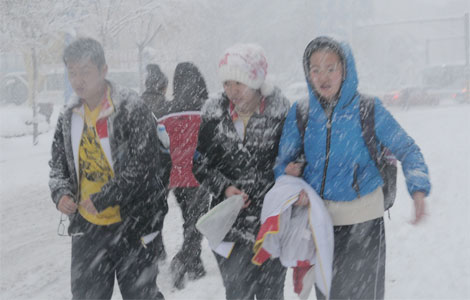
 In photos: NE China blanketed by heavy snow
In photos: NE China blanketed by heavy snow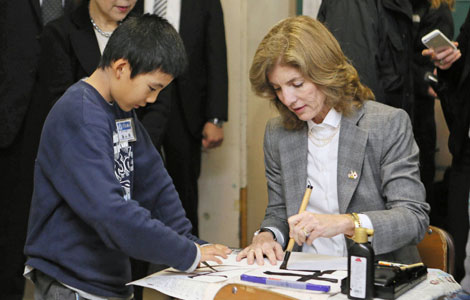
 Caroline Kennedy visits Japan's disaster-struck regions
Caroline Kennedy visits Japan's disaster-struck regions
 Volcano eruption leads evacuation in Indonesia
Volcano eruption leads evacuation in Indonesia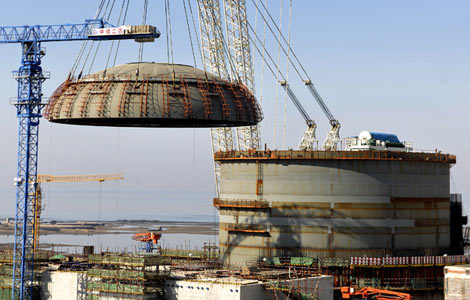
 Nuclear power 'to fall short of demand'
Nuclear power 'to fall short of demand'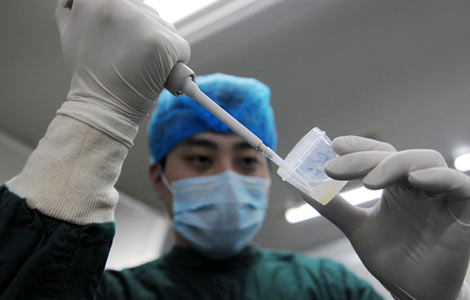
 Experts doubt smog linked to low birthrate
Experts doubt smog linked to low birthrate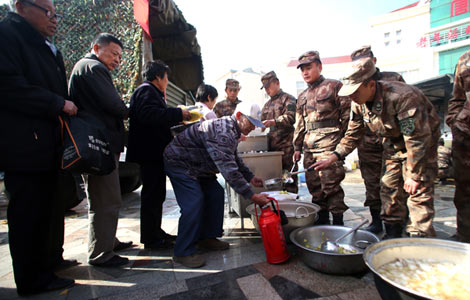
 Residents near pipeline blast demand relocation
Residents near pipeline blast demand relocation
 Doggy, please be my ears and listen for me
Doggy, please be my ears and listen for me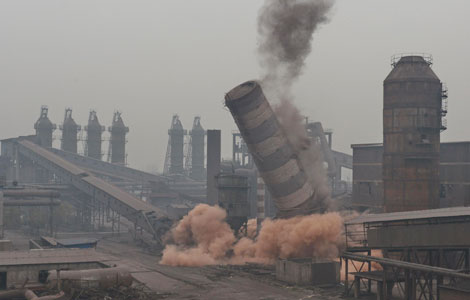
 Cutting output to help ease pollution
Cutting output to help ease pollution
Most Viewed
Editor's Picks

|

|

|

|

|

|
Today's Top News
More Americans say Obama can't manage govt
China, Romania seal deals
Kennedy visits disaster areas
Rules on investment eased
US move in ITA talks criticized
China to loosen airspace control
US irresponsible for suspending ITA negotiations
Vice-Premier ends US trip in NYC
US Weekly

|

|
